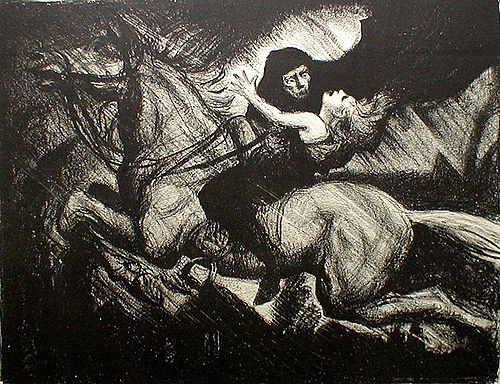Elfnoun
(Norse mythology) A luminous spirit presiding over nature and fertility and dwelling in the world of Álfheim (Elfland). Compare angel, nymph, fairy.
Elfnoun
Any from a race of mythical, supernatural beings resembling but seen as distinct from human beings. They are usually delicate-featured and skilled in magic or spellcrafting; sometimes depicted as clashing with dwarves, especially in modern fantasy literature.
Elfnoun
(fantasy) Any of the magical, typically forest-guarding races bearing some similarities to the Norse álfar (through Tolkien's Eldar).
Elfnoun
A very diminutive person; a dwarf.
Elfverb
To twist into elflocks (of hair); to mat.
Elfnoun
An imaginary supernatural being, commonly a little sprite, much like a fairy; a mythological diminutive spirit, supposed to haunt hills and wild places, and generally represented as delighting in mischievous tricks.
Elfnoun
A very diminutive person; a dwarf.
Elfverb
To entangle mischievously, as an elf might do.
Elfnoun
(folklore) fairies that are somewhat mischievous
Elfnoun
below 3 kilohertz
Elf
An elf (plural: elves) is a type of humanoid supernatural being in Germanic mythology and folklore (especially North Germanic mythology and folklore). In medieval Germanic-speaking cultures, elves generally seem to have been thought of as beings with magical powers and supernatural beauty, ambivalent towards everyday people and capable of either helping or hindering them.
Feyadjective
About to die; doomed; on the verge of sudden or violent death.
Feyadjective
(obsolete) Dying; dead.
Feyadjective
Possessing second sight, clairvoyance, or clairaudience.
Feyadjective
Overrefined, affected.
Feyadjective
Strange or otherworldly.
Feyadjective
Spellbound.
Feyadjective
Magical or fairylike.
Feynoun
Fairy folk collectively.
Feyadjective
Fated; doomed.
Feynoun
Faith.
Feyverb
To cleanse; to clean out.
Feyadjective
slightly insane
Feyadjective
suggestive of an elf in strangeness and otherworldliness;















